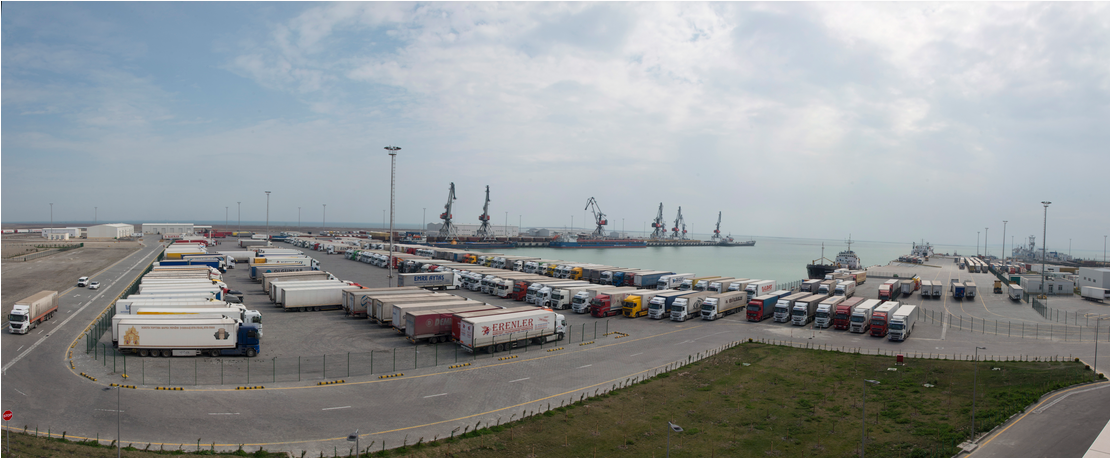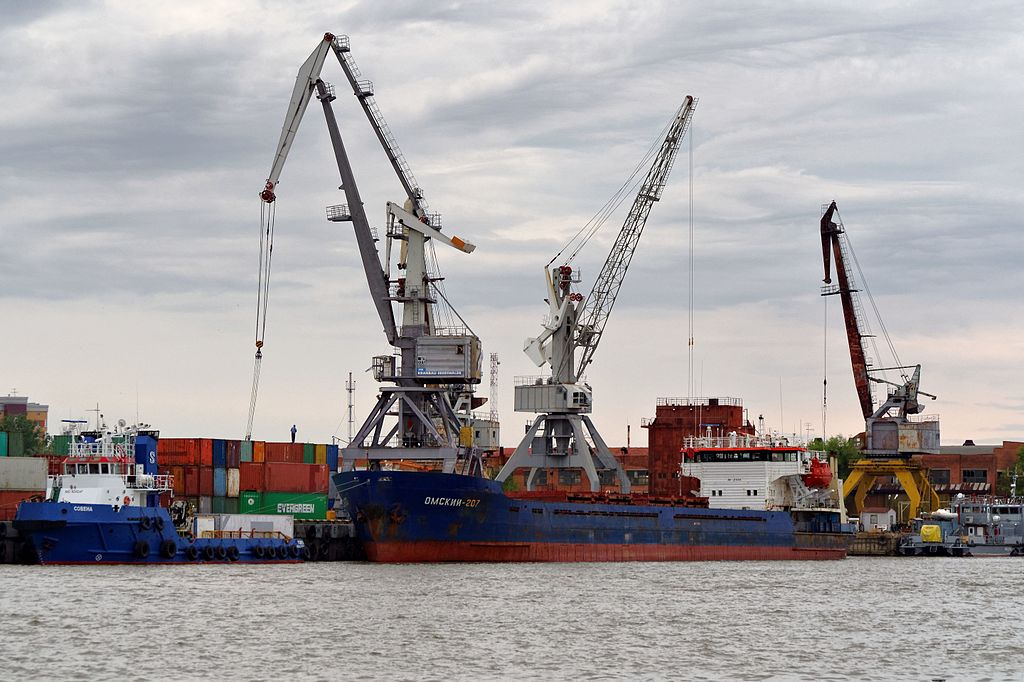
The pandemic and geopolitical conflicts have changed the international logistics schemes. Russia is set to influence the global cargo flows with the development of the North-South corridor, China – with the promotion of the One Belt - One Way initiative, Europe with the TRACEKA and Global Gateway projects.
The global transport routes were considerably affected by the coronavirus pandemic. With the surge of freight costs, imports of consumer goods and components from China started flowing en masse by Russian railways. Following the aggravation of the geopolitical situation in 2022 and toughening of sanctions imposed on Russia, the country launched an ambitious process of “eastward pivot of logistics”. The process is associated with certain challenges caused by insufficient infrastructure in the Far East and the Southern directions.
Meanwhile, a truly great game is unfolding in the Middle East, the Far East, the Caspian and the Central Asia regions for control over global cargo flows. China, Europe, Russia, Turkey, the Caspian and Central Asian states take an active part in this game.
Related tasks and solutions, were particularly discussed during the Transport Week 2022 in Moscow. According to Prime Minister Mikhail Mishustin, the first priority should be given to the development of international transport corridors (ITC).
“It is important to address the large-scale tasks related to the development of international transport and logistics corridors. This work should be conducted in cooperation with our foreign partners on the three major directions of infrastructure development: the Eastern, the Azov-Black Sea direction and the Caspian one. New through routes will serve as a strong foundation for expansion of the international trade. Russia is already building up the communication with the friendly countries, primarily with those in the Middle East, the South-East Asia and the Asia Pacific Region,” said the Prime Minister.
As Andrei Belousov, First Deputy Prime Minister of the Russian Federation, added at the meeting, the total capacity in the Far East direction (including highways) is to be raised to 350 million tonnes per year, cargo traffic on the Azov-Black Sea transport corridor – to 300 million tonnes per year by 2030 (from the current 180 million tonnes), while throughput capacity of the North-South corridor is to be raised from 14 million tonnes to 32 million tonnes per year.
“Why is it (North-South corridor) so important? Because it crosses several East-West transit corridors including those going round Russia. Therefore, that corridor lets drag in a number of transit flows and, in the future, if we succeed, change the entire global logistics of transport flows,” Andrei Belousov believes.

Indeed, North-South ITC is crossed by corridors particularly intended for running round Russia: TRACEKA (supported by the EU) and some routes of the New Silk Road.
In this context, the position of Azerbaijan is extremely important - a transit country with a favorable location at the junction of these corridors. Azerbaijan is currently announcing plans to increase the capacity of the port of Baku, the key one for all the "latitudinal" transport corridors in this region.
“The port’s infrastructure lets handle up to 15 million tonnes of cargo and 100 thousand TEUs per year. But, taking into account the growth rate of cargo transportation, we have embarked on the implementation of the second stage of increasing the port’s capacity raising the cargo throughput to 25 million tonnes and 500 thousand TEUs per year. We also plan to build two new terminals for handling of mineral fertilizers and a grain terminal,” Shahin Mustafayev, First Deputy Prime Minister of the Republic of Azerbaijan, said at Verona Eurasian Economic Forum.
For the above reasons, the Russian authorities have recently paid close attention to cooperation with Azerbaijan. According to the calculations of the Russian Government, the volume of transit traffic of Russian cargo through Azerbaijan by 2030 is to increase from 9 to 15 million tonnes per year, and the share of mutual settlements in national currencies is to increase dramatically (65% of settlements are currently made in dollars and euros).
Moreover, Andrey Belousov called on working out the issue of creating a single operator of the three countries, Russia, Iran and Azerbaijan, to provide a through transportation with the necessary level of logistics and services.
The Deputy Prime Minister of Russia believes that the North-South ITC will be able to compete with the Suez Canal in the future. It will be able to take over the cargo flows of the Persian Gulf, India, China and Africa. The benefits for Russia are obvious, since cargo will flow through Russia or to its consignees w, bypassing European ports. Part of the cargo going along the "latitudinal" corridors actually created to bypass Russia, will be "dragged" to domestic routes or to the ports of friendly countries. That is of the utmost significance amid the pressure of sanctions and the risks that logistics through the EU countries entail.
As for the European Union, EU's top diplomat Josep Borrell has recently visited Central Asia where he mentioned the idea of “Global Gateway” again. Under this project, the EU is going to invest about €300 billion until 2027. The Global Gateway is to support transport networks through expansion of trans-European transport corridors.
Of course, the North-South ITC development is not a one-day or a one-year project since it requires capital investments in the development of ports and shipping in the Caspian region, as well as the development of railways, particularly in Iran. However, the pandemic and the sanctions of 2022 show that traditional routes cannot ensure the stability highly needing for the global trade. Therefore, the struggle for influence on new transport corridors will just intensify.
Sabrina Mukfi.
More industry-related content is available on our social media pages: YouTube, Telegram, Yandex Zen



